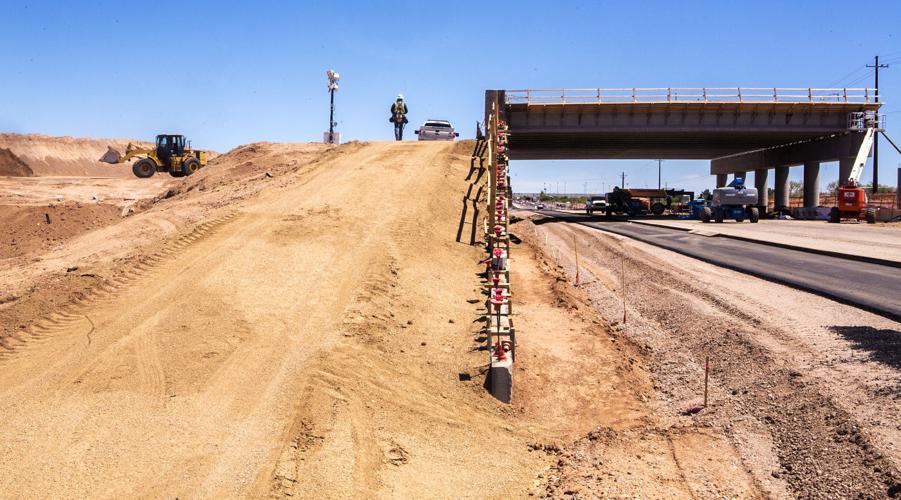Why did the tortoise cross the road?
An RTA committee wants to spend $400,000 to find out.
The Regional Transportation Authority’s Wildlife Linkages Working Group approved spending $200,000 of RTA money plus a match from the Arizona Fish and Game Department and other partners to find out whether tortoises and other wild animals use the wildlife overpass now under construction on North Oracle Road north of Oro Valley.
The project would examine whether the wildlife crossings and fencing keep animals off the road and reduce the number of crashes.
GPS units would be installed on 10 tortoises so researchers can track their movements. The tortoise telemetry part of the project would cost $14,600.
The project also would use motion-activated video cameras and still-image cameras at the new wildlife overpass and underpass.
Most of the money pays for researchers’ wages for the four-year project.
The project has both an ecological benefit and a safety benefit, said Rick Ellis, the working group chair.
Tortoises rarely cross roads and often get smashed when they try, the RTA proposal says. Wildlife crossings could help save individual animals and maybe even whole species,” Ellis said.
Tortoises already have been spotted using the underpass on Oracle Road.
“Wildlife crossings and fencing work,” and state officials know that because of monitoring projects, Fish and Game research biologist Jeff Gagnon told the working group.
The projects have reduced collisions and saved animals, he said. A wildlife overpass project on Arizona 93, which focused on bighorn sheep, reduced car/animal crashes by 85 percent, Gagnon said.
The Oracle Road project is the first wildlife overpass project built in the Sonoran Desert and is expected to help tortoises, mountain lions, bobcats, javelinas and coyotes, among other critters.
Other RTA committees and the full RTA board would need to approve the project before it moves forward. The RTA board previously rejected a more expensive, more elaborate wildlife-monitoring project for Oracle Road, Ellis said, but he thinks the board will like this partnership approach that takes on wildlife monitoring as a shared responsibility among government and nonprofit groups.
The Regional Transportation Authority plan, approved by voters in 2006, includes $45 million for wildlife-related projects.





